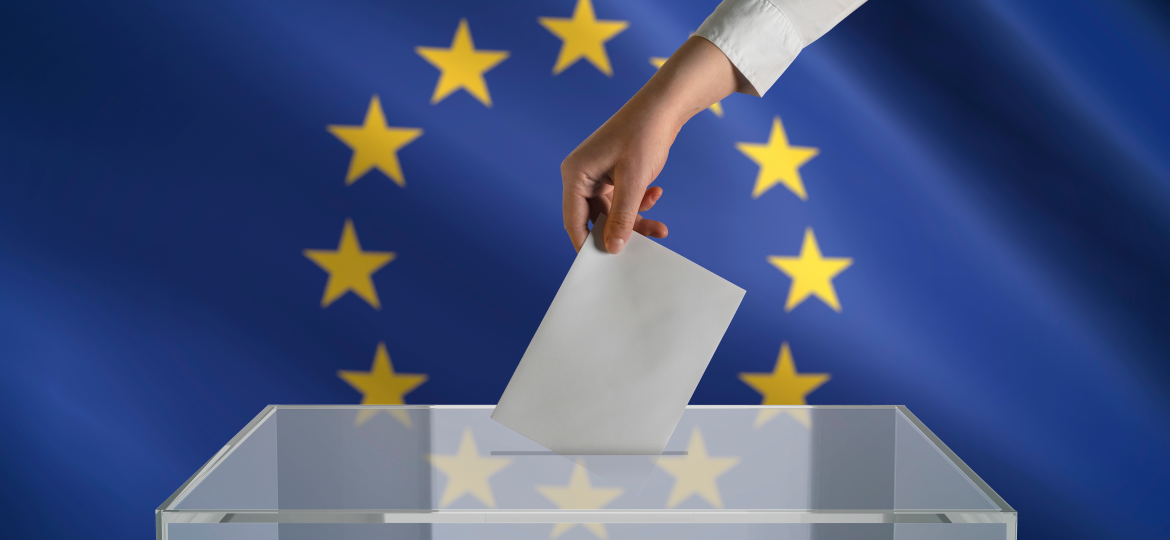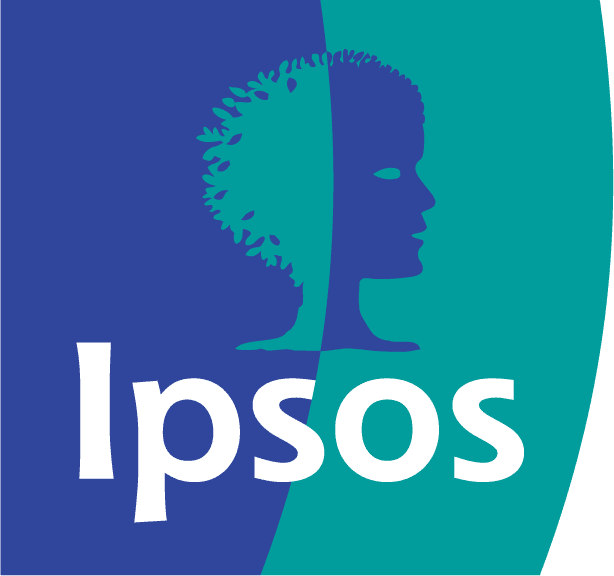
Exactly one month from today, the results of the European Parliament elections will be finalized. In the context of the European elections, the Central European Digital Media Observatory (CEDMO) conducted a representative survey in the V4 countries. In addition to questions on satisfaction with the functioning of democracy or willingness to vote in the elections, respondents also answered questions about the perceived risk of influence by foreign states and international institutions. The research was conducted for CEDMO by IPSOS (data collection in the Czech Republic, Slovakia and Hungary) and Instytut Badań Pollster (data collection in Poland).
More than a third of the population of all V4 countries perceive attempts by foreign states to influence European elections as a major problem. In Poland, this is even the case for more than half of the population – 55% (35% in the Czech Republic, 31% in Slovakia and 38% in Hungary).
Chart 1: Perception of influence on the European Parliament elections as a problem

While respondents in the Czech Republic perceived the greatest likelihood of foreign governments or international institutions influencing the June elections in the order of; Russia (44%), the European Union itself (40%) and the United States (36%), respondents in Slovakia expressed their expectations of a possible influence on the elections in the order of the European Union (39%), the United States (38%) and Russia as the third actor after the EU and the US (36%). In Hungary, Russia (54%) is perceived as the most likely actor in terms of influence on the elections, followed by the European Union and the United States (tied at 49%), and China (47%) in third place. In Poland, the largest share of respondents expressed expectations of Russian influence (63%), with the second largest share expecting influence from the European Union (54%) and Germany (47%) in third place.
Chart 2: Likelihood of influencing elections

Czechs and Poles showed a higher level of satisfaction with the functioning of democracy compared to the other countries surveyed (almost a third are satisfied). In Slovakia and Hungary, only a fifth of the population is satisfied with the functioning of democracy. Poles also reported significantly lower levels of agreement with the statement that most politicians are corrupt (51% compared to 60% in the Czech Republic, 67% in Slovakia and 74% in Hungary) and that no matter who wins the elections, the situation will not change much (45% compared to 54% in the Czech Republic, 50% in Slovakia and 51% in Hungary).
“About a quarter of the Czech population trusts the European Parliament and the European Commission. Trust in Czech institutions – the parliament, the government and domestic political parties – is paradoxically lower than in European ones,” Michal Šenk, a researcher at CEDMO Hub, comments on some of the results for the Czech Republic: “Almost a third (29%) of Czechs have a positive perception of the European Union, another 34% have a neutral perception and 37% have a negative perception.”
Poles showed the greatest interest in participating in the European Parliament elections. 78% of them plan to go to the polls in June (the sum of the answers is definitely yes and rather yes). Hungarians expressed the second highest interest (68% plan to vote). Czechs (61%) and Slovaks (62%) expressed the lowest interest almost equally.
Chart 3: Declared willingness to vote in the European Parliament elections

According to reports by the fact-checkers of the CEDMO hub, there are a number of false reports about the European Union in the context of the European Parliament elections. Petr Gongala from the Demagog.cz lists among the news stories captured in the Czech Republic between January and April 2024 mainly narratives questioning the Green Deal, fake news reporting on the impact of the migration pact, and European countries’ support for Ukraine. Slovakia has also seen reports that the European Union is imposing new foods on its Member States, such as genetically modified organisms, insects or cockroach milk. At the same time, there is also disinformation about electric cars, including the decision to ban internal combustion engines completely after 2035, although in reality, it is just a matter of charging for emissions. Slovakia has also been the target of false information about EU environmental funds – in particular, the report that the European Union is giving millions of euros for gopher watching. In Poland, disinformation was spread about the ban on home-grown fruit and vegetables, the ban on toilet paper, or the risk of expropriation of houses because of the Energy Performance of Buildings Directive.
The data presented in the press release contains the results of a survey conducted for CEDMO by the agencies:
- IPSOS on a representative sample of 1006 respondents in the Czech Republic, 1006 respondents in Slovakia and 1002 respondents in Hungary
- and Instytut Badań Pollster (on a representative sample of 1087 respondents in Poland[1] ).
Data collection in all V4 countries took place between 28 March and 3 April 2024 among respondents aged 18-65 years.
The aforementioned disinformation narratives related to the European Parliament elections were captured by fact-checking organizations of the CEDMO consortium (AFP, Demagog.cz, Demagog.sk and Infosecurity.sk) in the first four months of 2024.
[1] The data collection in Poland was carried out within the CEDMO project, which is co-financed by the European Union (contract number: 2020-EU-IA-0267).






